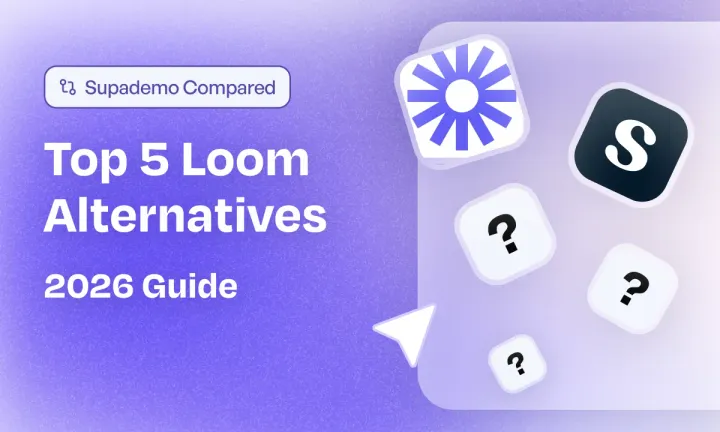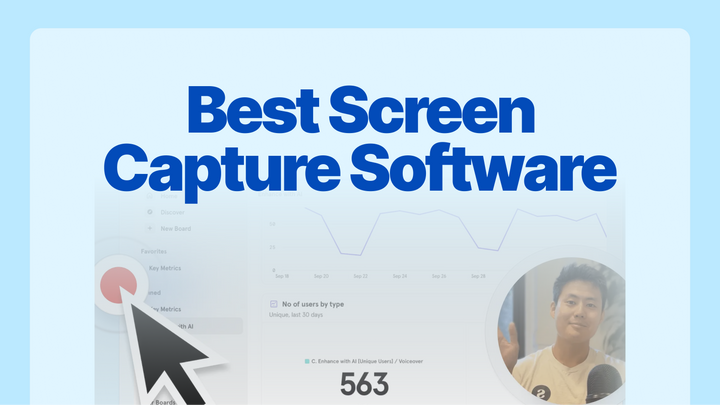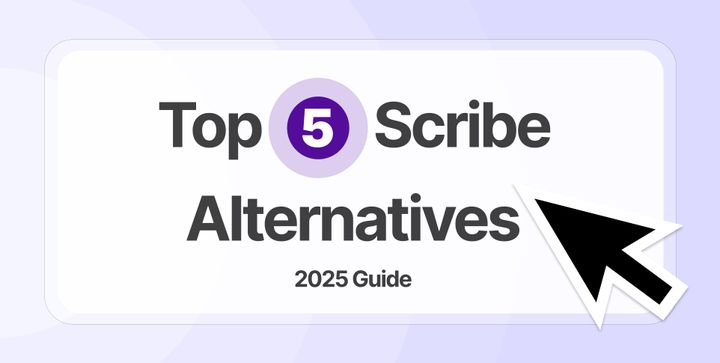On paper, Instruqt is a reliable tool for building virtual labs and workshops. But, it might not be the best solution for you as it's heavily developer-focused.
Due to this, it requires long training sessions to set up a single lab, and pricing might also hold you back.
So, we decided to search the market and find cheaper, but effective Instruqt alternatives. In this article, we'll explore 6 of its best alternatives and competitors for 2025.
TL;DR
CloudShare: For creating interactive virtual labs with detailed analytics and instructor oversight
TestBox: For creating self-updating sandbox environments that reflect synthetic product interface and data
Heropa: For delivering scalable virtual IT lab environments for technical training across multiple operating systems
Skytap: For building cloud-based virtual machine environments with flexible access control
Appsembler: For building comprehensive virtual labs with assessments and certifications
What is Instruqt?
Instruqt is an enginner-first platform to create hands-on virtual IT labs and interactive software experiences. It comes with a fully-featured programmer's editor and supports various programming languages, enabling engineers to build, manage, and scale the production of virtual labs.
Where it truly shines is with integration with Learning management systems like Docebo, Skilljar, and Thought Industries. It then creates a cohesive learning experience by offering a structured product learning pathway to the learners.
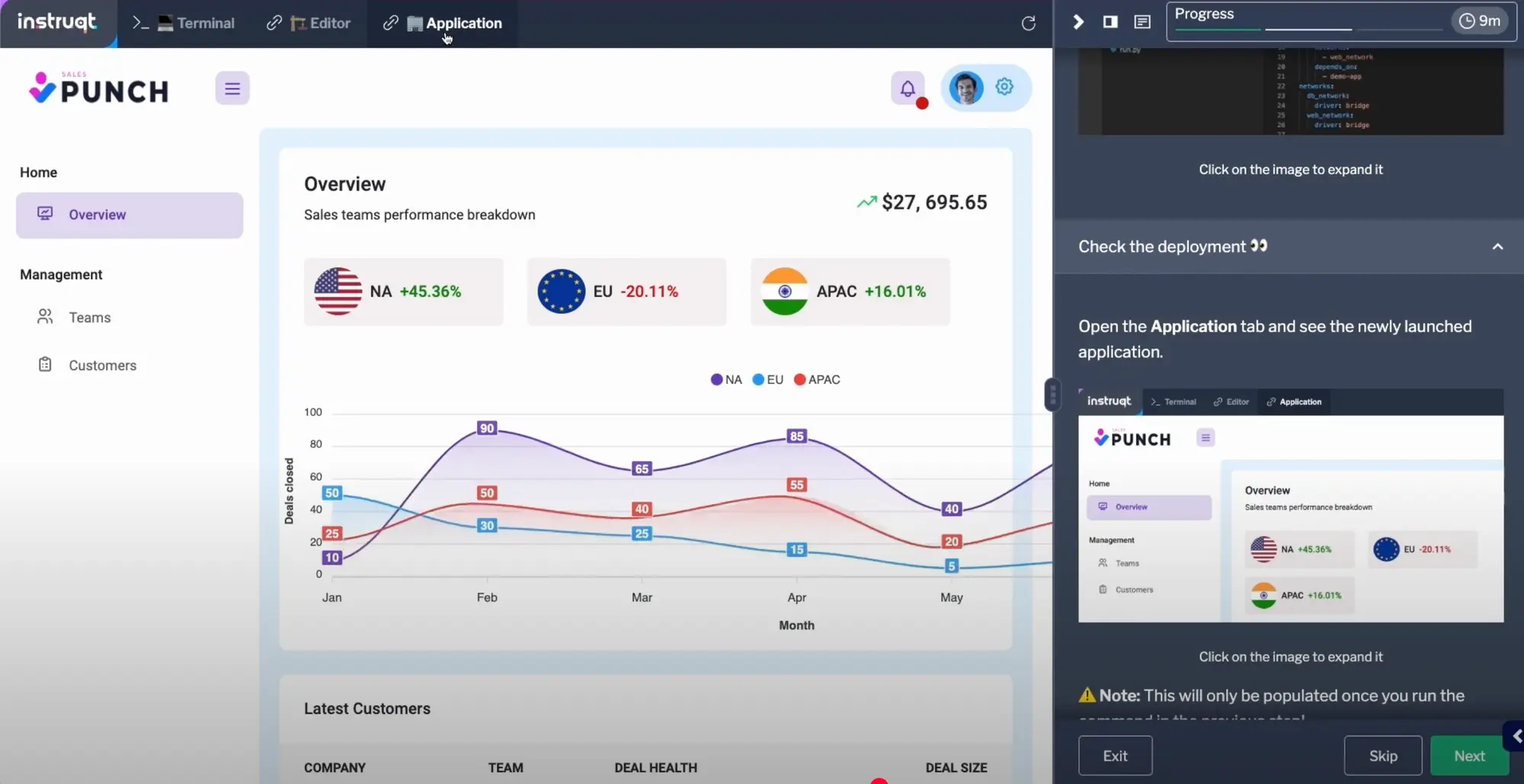
Why do users look for Instruqt alternatives? (with proof)
When talking with users who've switched from Instruqt, two main reasons consistently come up:
Reason #1: It can be challenging for non-technical folks
Instruqt is built specifically for technical training and demos, which is great if that's your background. However, many users struggled because they didn't have technical expertise or support from their dev team. Content creators and instructors without coding experience often find themselves facing a steeper learning curve compared to more general training platforms.
Reason #2: The investment makes more sense for larger operations
While Instruqt offers customized pricing, smaller teams frequently mention difficulties justifying the cost. Especially when working with a limited learner base, exhibiting ROI can become challenging.
The platform makes financial sense for large enterprise businesses with huge development budgets, but smaller teams often need something more aligned with their scale.
If you don't want to compromise on the feature but need an all-rounder tool that fits your pocket, keep reading.
What are the best alternatives to Instruqt in 2025?
After analyzing dozens of virtual lab platforms, we have ended our research with the following top 6 Instruqt alternatives.
1. Supademo
Supademo is among the intuitive and comprehensive Instruqt alternative that helps you build interactive product demos for multiple use cases—customer onboarding, employee training, new hire onboarding, and product documentation.
While Instruqt solely enables developers to create virtual labs through coding, Supademo distributes that power to anyone— whether you're a budding content creator or VP of sales.
We have designed Supademo to make demo creation an easy and fun process. Let's explore the features that make it all possible.
Our tool automatically populates your demo with guided spotlights, accurate text annotations, and strategic zooming—helping you delivering a polished, share-ready walkthrough in minutes.
You can transform the default demo into a fully white-labeled, viewer-focused masterpiece with these editing features:
✅ Include an intro chapter: Add a compelling thumbnail (can be an image or a video of you)
✅ Remove Supademo's brand logo: Make each demo tailored to your brand (or customers)
✅ Add background music: Choose from existing ambient audio
✅ Choose a color scheme: Align hotspot, CTA, and background color to your brand's identity
✅ Zoom in to key clicks: Highlight key areas by zooming into the recorded screen
✅ Adjust hotspot design: Select from the prebuilt hotspot styles and adjust the positioning
✅ Edit CTA button: Add animations, change the background color, or edit the copy
✅ Blur sensitive information: Maintain privacy by redacting data or other private information
This is great, but what if you wanted to scale your demo production and don't have time to repeat the same edits?
In Supademo's admin section, you can preset the editing toolkit by adding your brand's name, logo, color, and images. This will reduce your editing time drastically.
Here's how a fully customizable demo might look for you or your customers. 👇🏼
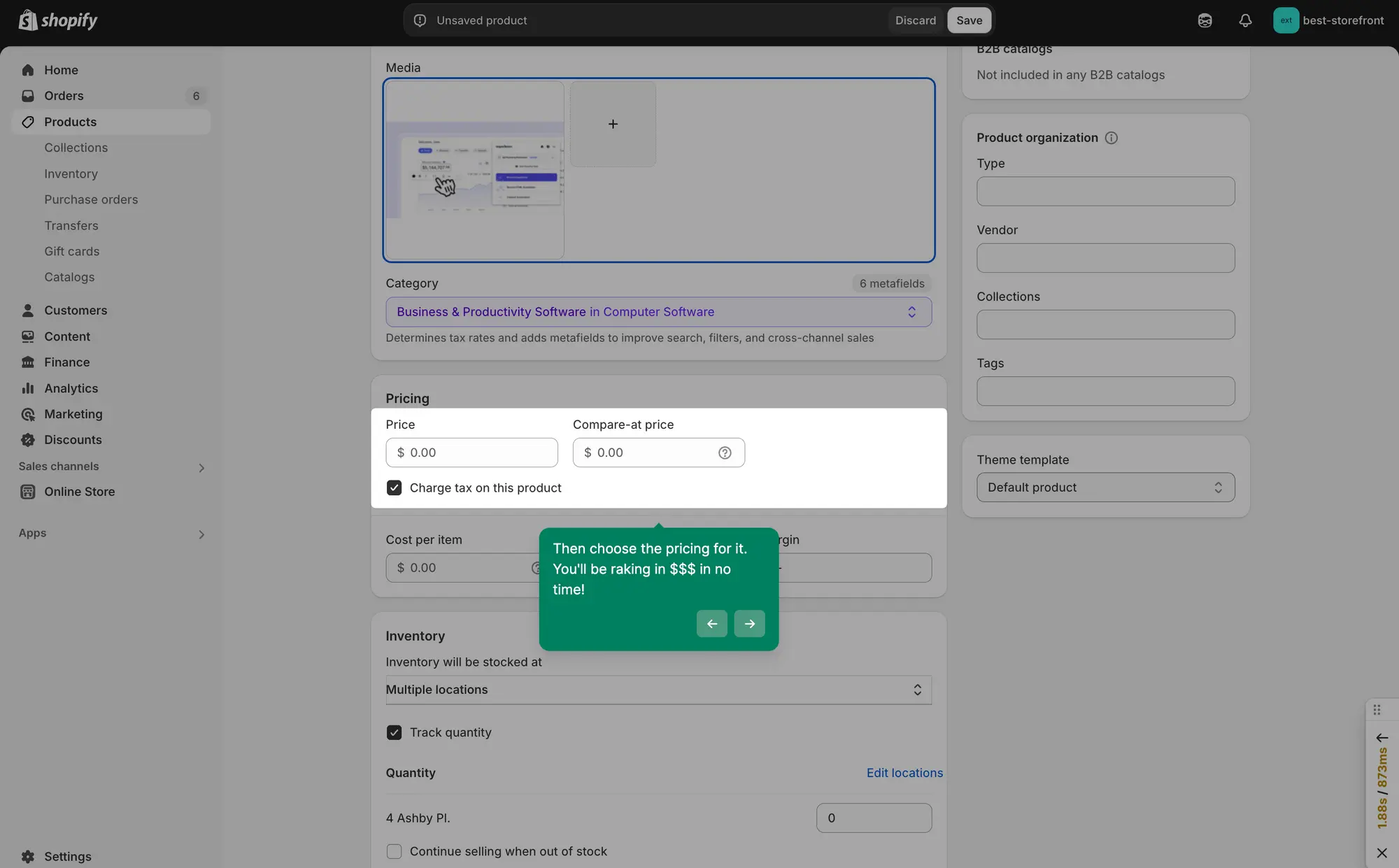
Supademo offers a bunch of AI tools to assist you, too. You can choose from:
AI text generation: Generate annotations through a prompt-based system
AI voiceovers: Add human-like voiceovers in different accents to dictate steps
AI translation: Localize demo content by translating it into 15+ languages, including German, Spanish, and French
Increased sales number. Higher customer engagement. Happy users. That's what personalized demos can help you achieve.
Supademo helps you achieve such benefits by enabling you to make each demo tailored to the target viewers—whether you want to educate co-workers or nurture a high-qualified lead.
Here's how:
✅ Add a personalized intro video: Leave a lasting impression by welcoming users and giving them a short demo overview.
✅ Include dynamic variables: Address viewers by their name or refer to the company they work for. You can add these variables in the demo's title, hotspot annotations, or buttons.
✅ Give options through conditional branching: Enable viewers to select their adventure by giving them multiple options upfront.
✅ Trackable links: Create custom links for target users that power the analytics dashboard with specific data.

Supademo is designed to help you manage 100s of demos without breaking a sweat.
When you log in, you get a clean, neatly outlined homepage with the option to add new folders. You can get creative and organize these folders to store demos to access them later.
For example, you can create folders for each client, department, or demo type. It might look something like this. 👇🏼

Simply drag and drop the demos shown in the recent tab of the home page or move demos to respective folders when editing.
While folders and subfolders save you time in the backend, users can quickly feel overwhelmed if you shoot numerous demos at once.
Supademo has a solution for that, too—Multidemo showcases.
Showcases help you consolidate similar demos in a single URL, creating a structured learning path. So, instead of making viewers jump through the hoops of min-demos, they will have a centralized place to learn.
He has divided the showcases into four key sections (collect, manage, share, automate), each highlighting specific features and use cases. Read the full story here.
Supademo's analytics dashboard is a masterpiece—both in visual and practical terms.
It gives you a glimpse into how your demo campaigns have performed with a visual line graph. You can see the average engagement rate and total viewers in big, visible numbers.
You can sort this data by period or workspace (if you manage multiple).
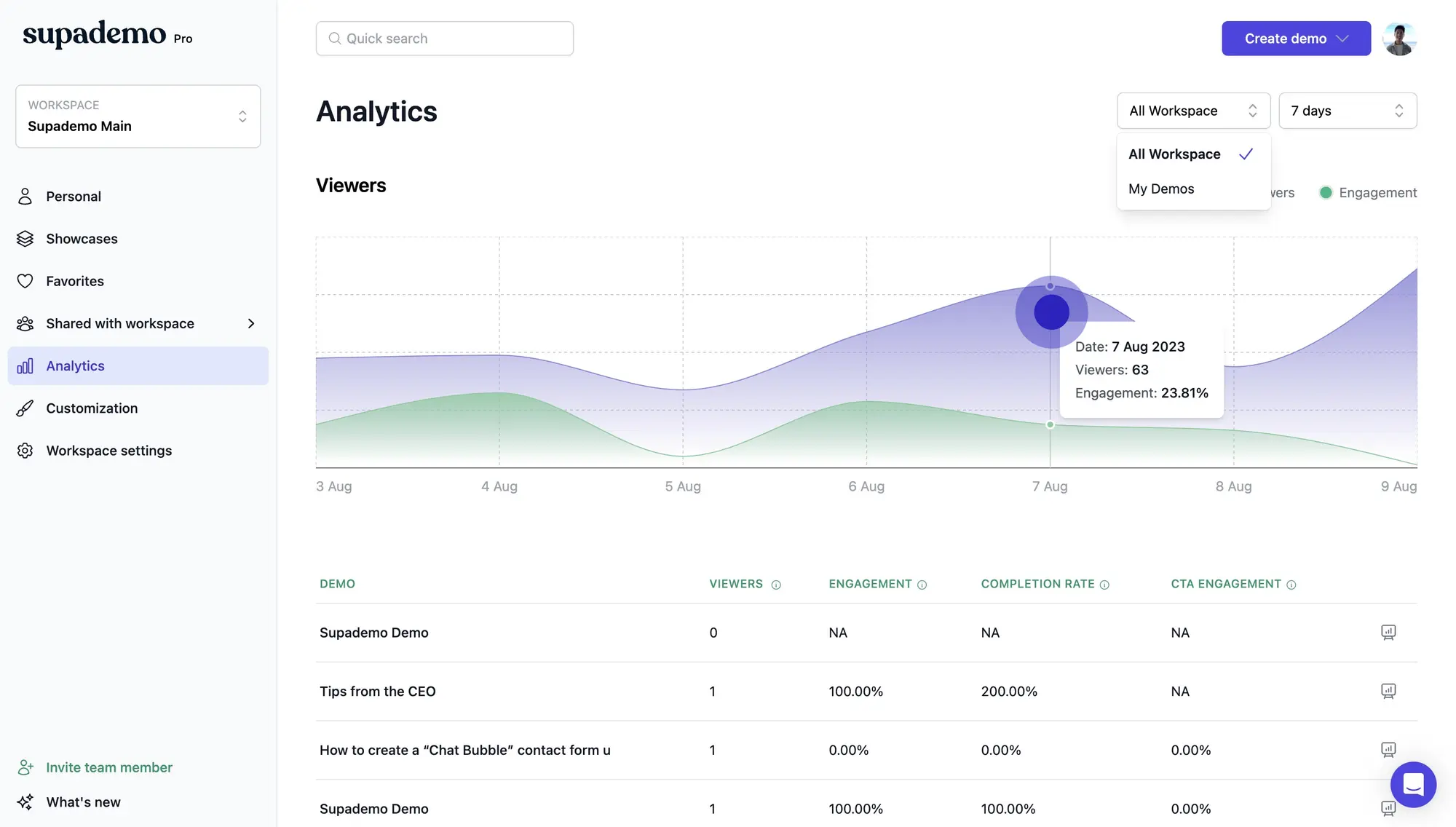
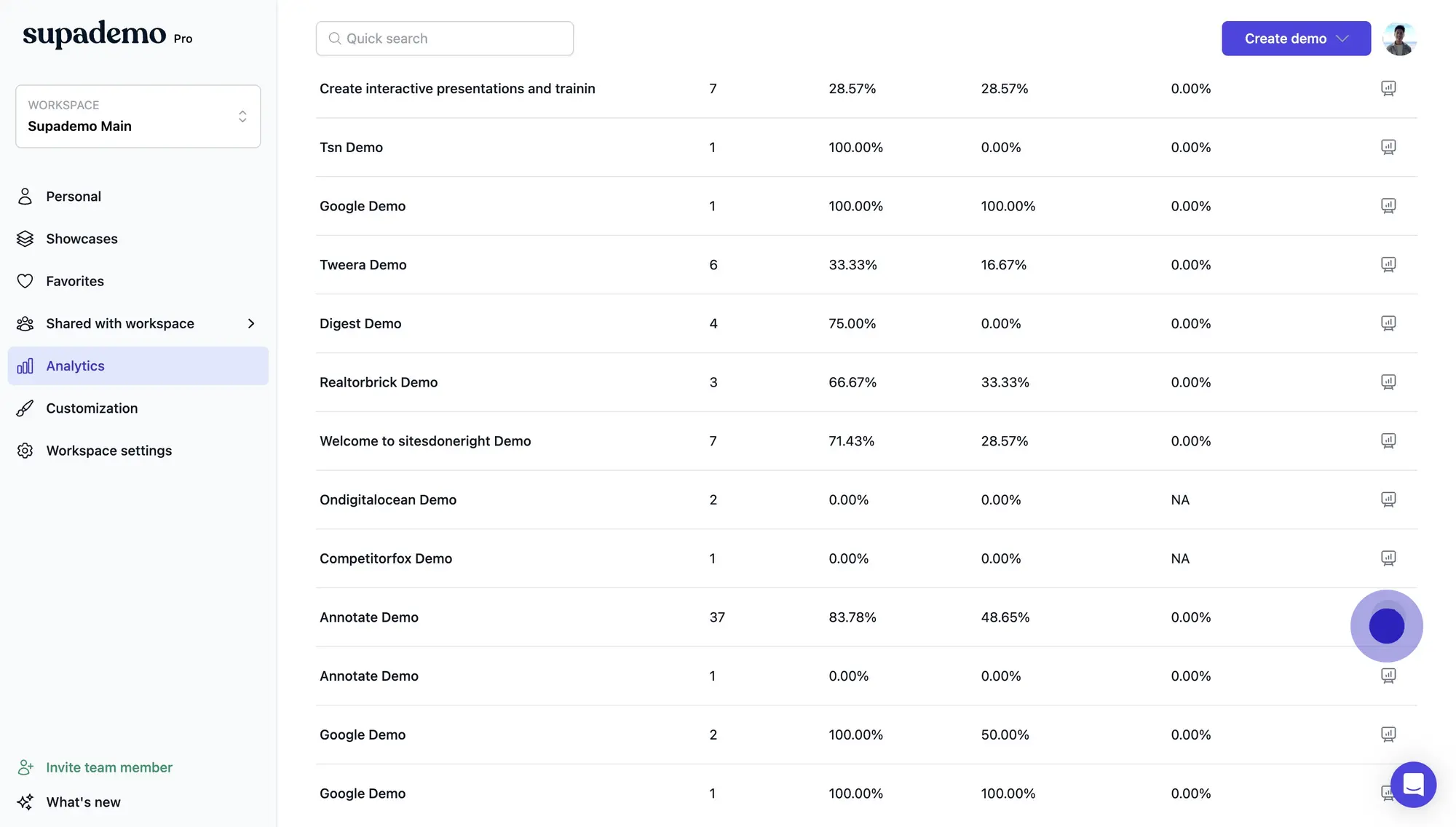
Metrics
You'll see how many people have viewed your demos and engagement rate. The completion rate shows how many viewers made it to the last step. If your demos contain a button, you'll see a number of clicks under the 'CTA engagement' tab.
Progression bar
Then, there is a bar graph indicating how users have progressed through each step. From this graph, you can pinpoint a drop-off in user engagement and specific steps where most users leave the demo.
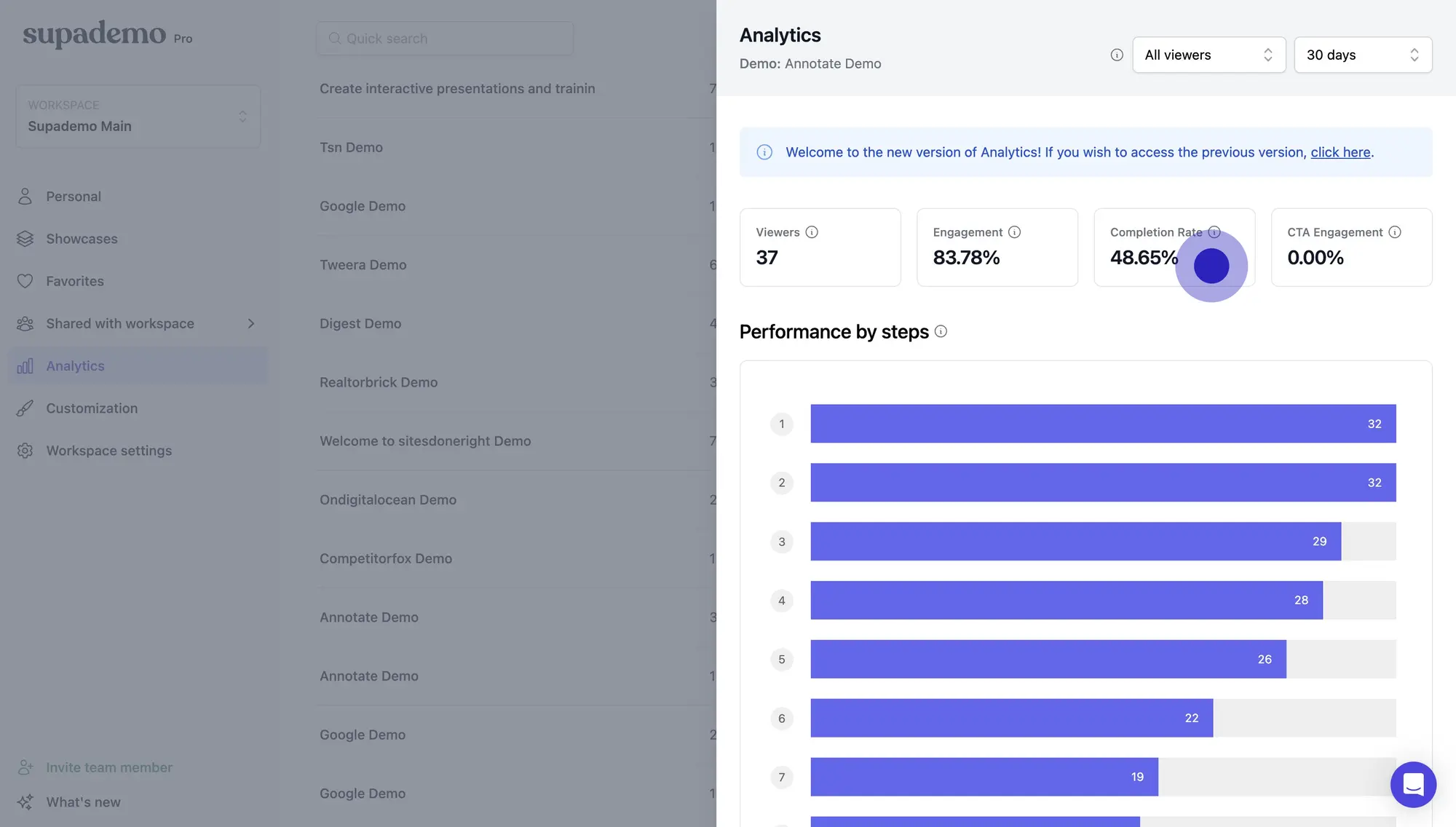
What is Supademo’s pricing?
Supademo offers five pricing plans, catering to a small team of 5 to an enterprise-grade business.
Here's a quick breakdown of some of the features offered in each plan!
Pro Plan ($36/user/month): Includes unlimited demo creation, zoom and pan, shared team workspace, Supademo AI, and personalization.
Scale Plan ($50/user/month): Include dynamic variables, conditional branching, password and email protection, and custom domains.
Growth Plan ($450/user/month): Includes 5 creator accounts, unlimited HTML demo capture and editing, and view-only team members access.
Enterprise Plan (Custom Pricing): Includes SSO, custom data retention, personalized onboarding support, and SAML authentication.
What are Supademo's pros & cons?
✅ Intuitive: Exceptionally easy to use—anyone on your team can build and launch a demo in under an hour.
✅ Affordable: Offers advanced features like AI and team collaboration starting at just $27/creator/month (there's a free plan too)
✅ Flexible: Record a demo in a way that works for you—Chrome extension, web application, HTML, Figma plugin, or classic image/video upload
✅ Visually appealing: Each dashboard is neat and offers a smooth user experience making working doesn't feel like it
✅ Supportive: Offers quick and excellent live chat, email, and Slack support
❌ Limited integrations: Doesn't have an extensive range of integrations. Currently, we support HubSpot, Salesforce, Slack, GA4, Zapier, and Marketo.
Why is Supademo the better alternative to Instruqt?
Long implementation cycles, technical knowledge, and expensive pricing are among the biggest concerns of Instruqt's users.
While Instruqt might be a godsend for developers, it's not the best choice for teams looking for a no-code interactive demo builder. Supademo is.
Here's why 👇🏼
- Quick implementation: Our users typically launch their first demos within an hour, contrasting Instruqt's more complex setup requirements. As attests, ReelDx CEO, Bob Humbracht,
"For a really long time, we've been looking for an easy onboarding solution that meaningfully allows users to try the platform. We explored a lot of solutions, but none were as easy as Supademo."
- No-code platform: Unlike Instruqt, which is built for engineers and coders, Suppademo is a no-code tool that can be used by anyone regardless of their technical expertise.
- Built-in AI tools: Saves hours of repetitive tasks by generating text, translating, and transcribing demos.
- Easy to use: Our tool is intuitive at first glance. Each option is neatly laid out, helping you focus on the actual task—building engaging demos.
- Low barrier to entry: Unlike Instruqt, you can start using Supademo with its free plan or by paying $27/creator/month.
If you're short on time, check out this side-by-side comparison of Supademo vs. Instruqt. 👇🏼
2. CloudShare
CloudShare is a virtual learning experience platform that helps you build a virtual learning environment by replicating real-world experiences of your product for the learners.
You can train team members, build proof of concepts (POCs), and enable sales teams to close more deals. And you can monitor the interaction and engagement through built-in analytics tools.
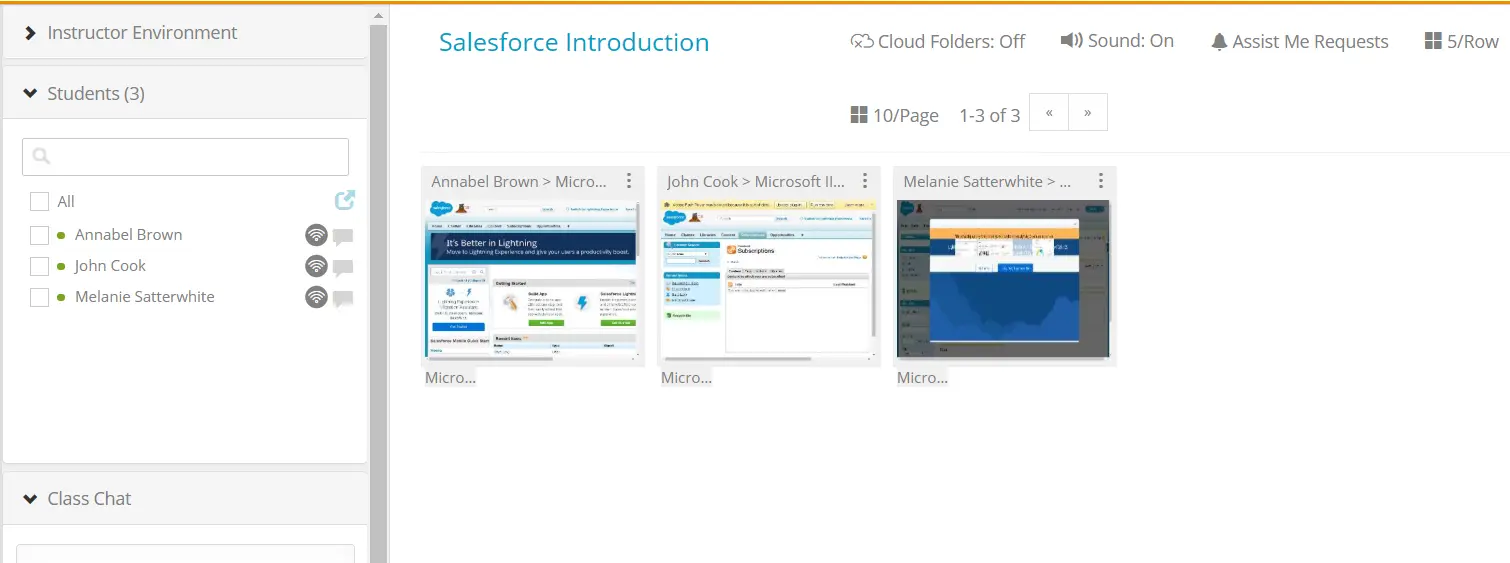
What are CloudShare's key features?
- Instructor console: Instructors can manage and monitor learners' progress, intervene when needed, and guide the learning experience effectively.
- Guided Journeys: Organize course content into structured sections, providing participants with a step-by-step learning experience.
- Analytics: Track user engagement and interaction with demos in real-time, gaining detailed insights into its effectiveness and resource utilization.
What is CloudShare's pricing?
CloudShare offers custom pricing plans. Book a demo call to get a quote.
What are CloudShare's pros and cons?
✅ Unlimited number of users on all the plans
✅ Easy to collaborate with trainers and trainees with native team collaboration tools
✅ Modern and user-friendly UI with a low learning curve
❌ Often runs into performance issues, especially when launching complex training setups
❌ Mobile application isn't as versatile and intuitive as the desktop version
❌ Costs increase as you create more training demonstrations
3. TestBox
Testbox is an advanced product demo platform that helps you create a product-like environment using public and network APIs to ingest data directly into your live product.
Such an integrated experience means you don’t have to re-record demos if you launch new feature updates or make major interface changes. Every demo updates automatically, giving viewers a fresh and updated view of your product's strengths.
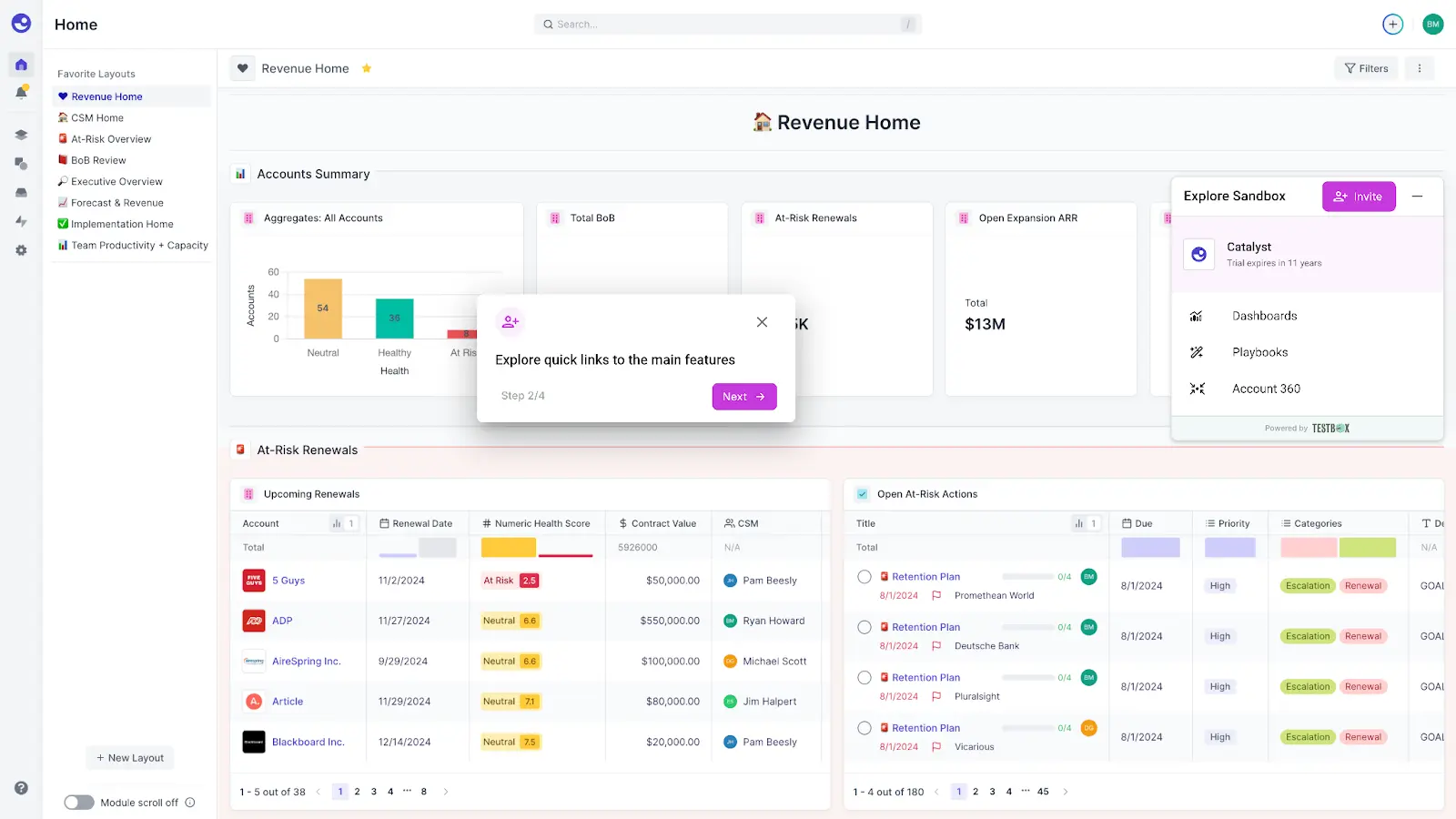
What are Testbox's key features?
- Live product demo environments: Create live, fully functional product demos that update in real-time robust, realistic, PII-free data.
- Usage analytics: Track viewers’ engagement and analyze their interaction with each demo.
- Personalized demo experiences: Build a simulated sandbox environment pre-populated with custom data for different user segments.
What is Testbox's pricing?
Startup (Starts at $44,750 for 15 users): Includes basic foundational demo or POC building experience with no integration and expensive data analysis.
Growth (Starts at $59,500 for 15 users): Includes third-party integrations, advanced multi-product demo building, and complex data-tracking workflows.
Enterprise (custom plan): Includes tailored enterprise setup, AI-powered workflows, and segmentation.
To add new users, you need to pay $1,200/user regardless of the plan.
What are Testbox’s pros and cons?
✅ Shortens sales cycles by automating demo and POC creation
✅ Provides realistic, PII-free data for authentic demonstrations that update in real-time
✅ Reduce your workload as you don't have to update the demo every time you make changes to the interface
❌ Implementation process can be resource-intensive due to heavy reliance on developers to set up
❌ The synthetic data might have inconsistencies, requiring you to oversee and fact-check
4. Heropa
Heropa is a leading virtual IT lab platform for customer training and education. It enables sales engineers to create scalable virtual environments for various purposes, from small demos to large-scale training sessions.
It supports virtual instructor-led (VILT) and self-paced training, allowing learners to master real-world software environments at their own pace.
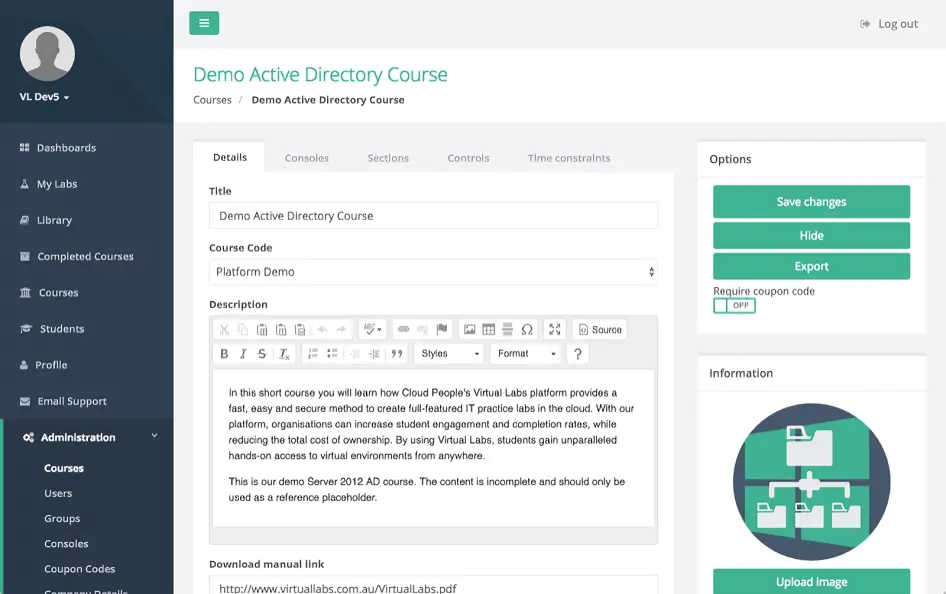
What are Heropa's key features?
- Customizable lab environments: Create secure, dedicated virtual lab environments for each participant, catering to an individual's learning style.
- Templates: Reusable virtual lab blueprints to create learning programs at scale. Each template supports Windows, Linux, and macOS.
- Training credits: Offer prepaid access to training courses and hands-on labs, enabling customers and partners to purchase bundles of training credits.
What is Heropa pricing?
Heropa’s pricing is custom-based on the monthly consumption of cloud resources. You need to book a call to get a quote.
What are Heropa's pros and cons?
✅ High degree of simulation mimics real-world lab environments, creating immersive learning experiences
✅ Offers customizable lab environments enabling you to create simple setups to complex multi-tier programs
❌ Limited demo templates that can add extra time to set up a learning environment
❌ Not well-versed for sales enablement or customer onboarding
❌ Some users report challenges in setting up and managing complex labs efficiently
5. Skytap
Skytap is a cloud-based learning solution that helps you build virtual training demos for employees, stakeholders, clients, and customers. The platform uses virtual machines (VMs), the brains behind building a solid lab environment. Skytap offers tons of pre-built machine templates and supports custom ones, too.
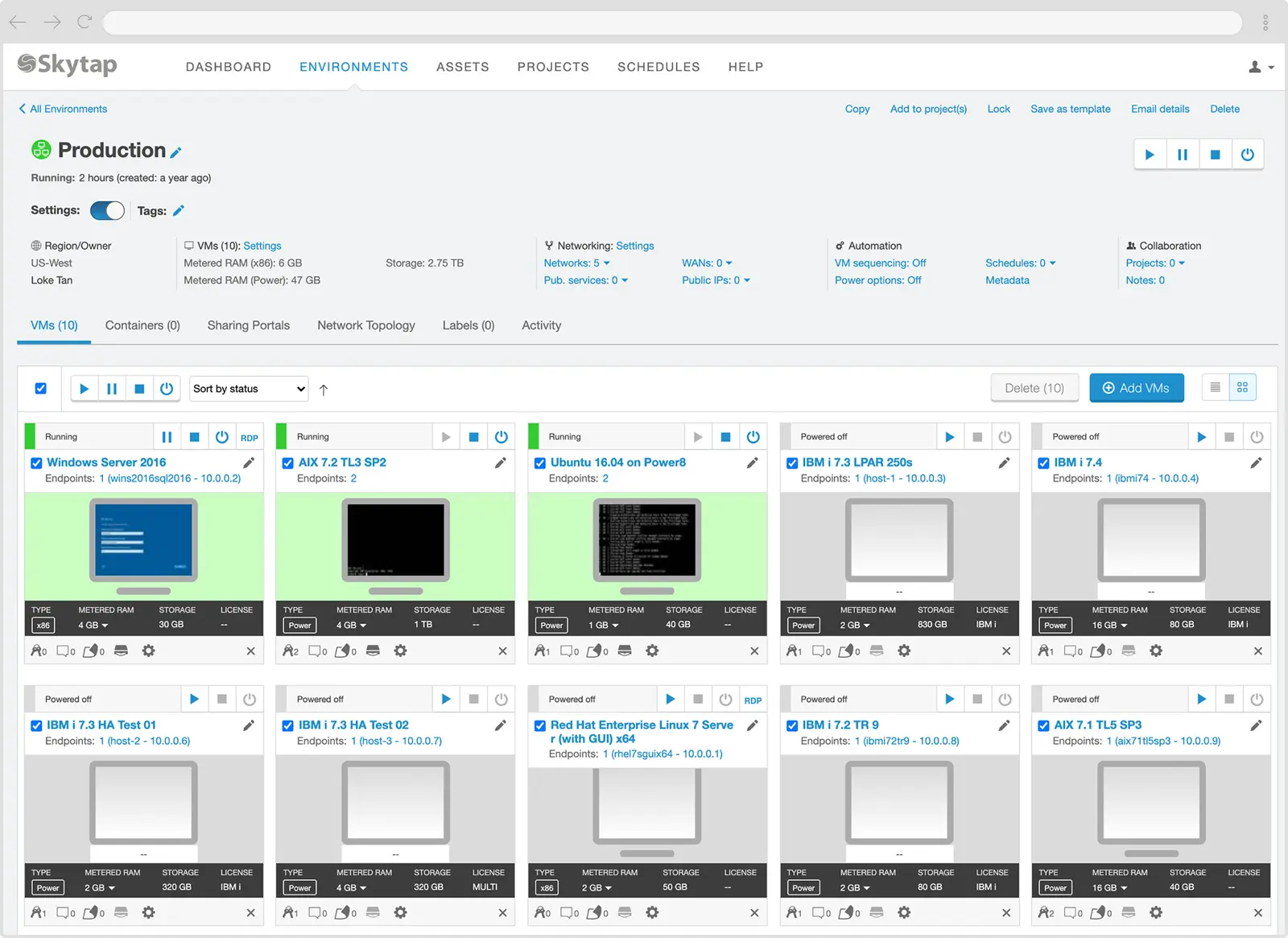
What are Skytap's key features?
- Rapid environment provisioning: Replicate product interface into learning environments for hands-on learning.
- Sharing portals: Share URL-based access to virtual learning labs with internal members or external stakeholders. You can password-protect it and also configure the access duration.
- Custom templates: Use pre-built product training demos and configure them based on the type of learning programs you want to offer.
What is Skytap's pricing?
Skytap offers only a custom pricing plan. You need to book a demo to get a quote.
What are Skytap's pros and cons?
✅ Helps you keep demo content safe through password-protection
✅ Easy to create multiple demos and save them as templates
✅ Support migration of existing applications to the cloud without requiring modifications
❌ Inefficiency in workflow due to outdated and clunky interface
❌ Requires extensive configuration to set up a structure virtual environments, slowing down scalability and setup processes
❌ Doesn’t integrate with essential platforms like CRMs
6. Appsembler
Appsembler offers two distinct tools—Tahoe LMS and Virtual Labs. With Tahoe LMS, you can build an end-to-end learning system, including courses, assessments, and certificates. Virtual labs help you create custom product demos to facilitate micro-hands-on training for employees and customers.
It focuses on employee upskilling by integrating with a Learning Management System (LMS) like Open edX through a unique lab identifier.
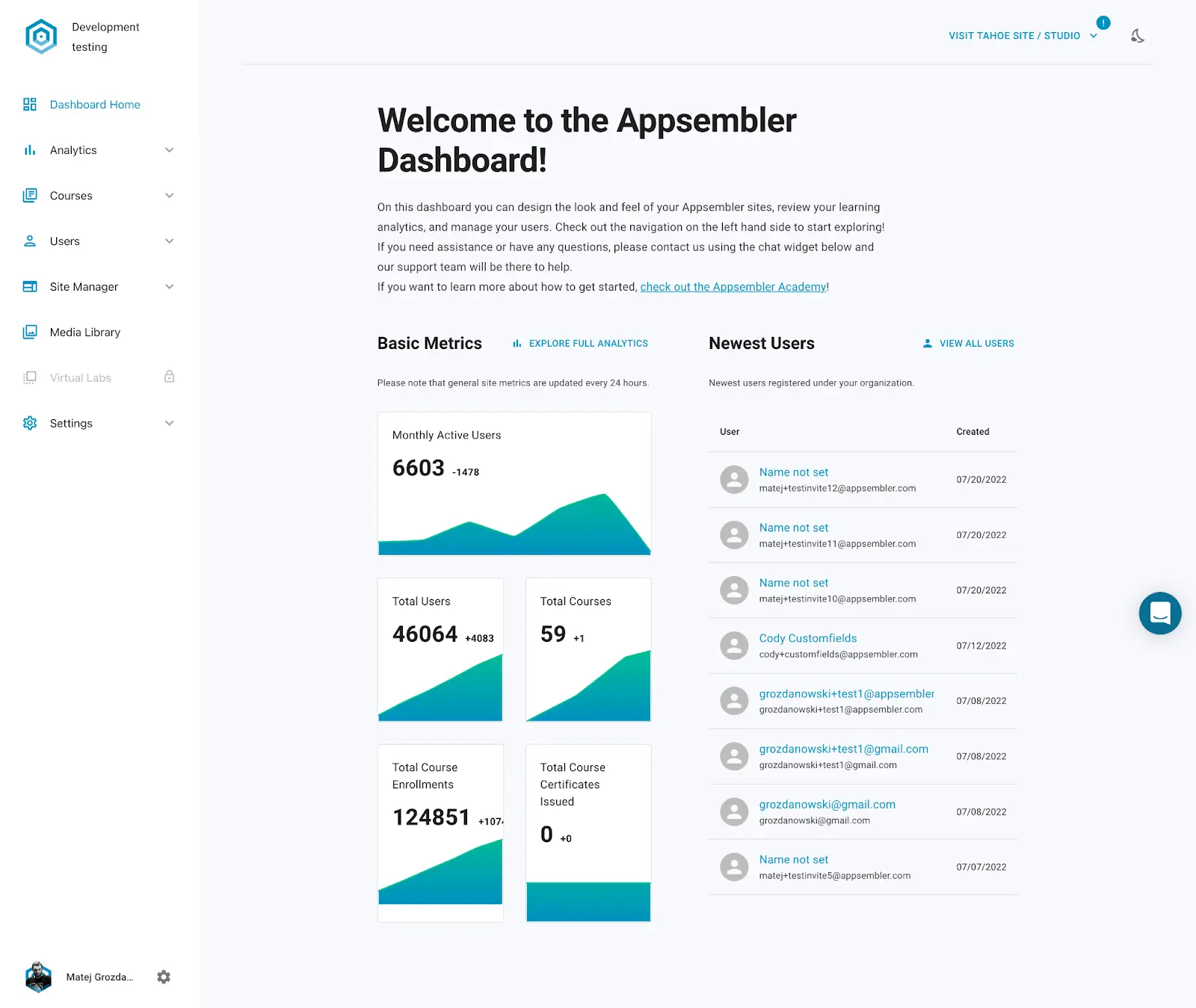
What are Appsembler’s key features?
- Assessments: Include evaluation criteria in virtual labs, such as quizzes, to test the learner’s understanding of specific features.
- Certification tools: Automatically generate certificates upon course completion, enhancing learner motivation.
- Analytics: Track learner progress and engagement and fine-tune their training programs based on real-time data.
What is Appsembler’s pricing?
There are three paid plan and each comes with access to manage 100 MAUs, for starter.
Starter (Starts at $525/month): Includes themes and page editor, Open edX Studio Course Authoring, instructor reports (CSV), and real-time reporting.
Pro (Starts at $1,260/month): Includes Integrations (Zoom, Illumidesk, etc.), CSS editor, custom domain, and single-sign-on (SSO).
Premium (Starts at $2,625/month): Includes 2 dedicated training sessions, Business Intelligence Connector, and API endpoints.
What are Appsembler's pros and cons?
✅ Ease to customize and set up for your company’s preferences
✅ Helps you deliver a practical learning experience by integrating with e-learning platforms like Open edX
✅ Offers a comprehensive course library for self-paced and instructor-led training programs
❌ Administration can become difficult when you manage multiple courses
❌ Longer setup time due to the need for extensive configuration and testing
❌ High starting cost ($525/month) makes it less accessible for smaller businesses on limited budgets
Finding the best Instruqt alternative
Instruqt is a suitable choice for teams with coding knowledge and ample time to invest in building a comprehensive virtual lab experience.
But, it can limit scalability for smaller teams who want to launch 100s of compelling and educational demos at lightning speed. To accomplish that, Supademo is the ideal alternative.

It's intuitive, affordable, and offers an extensive range of features, from recording to organizing the database. Software companies like beehiiv have seen a 20% increase in their signup through interactive demos, while Porter Metrics cut time in half for demo creation.
To see such results, start your free trial today!




